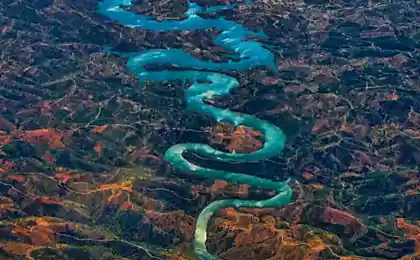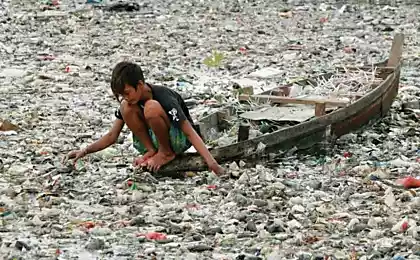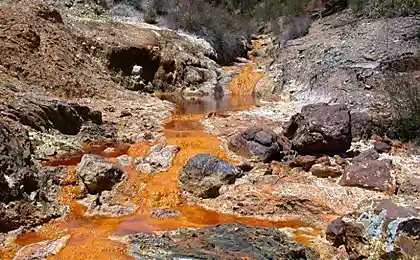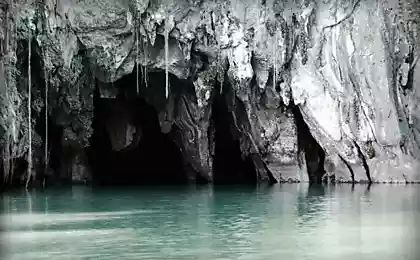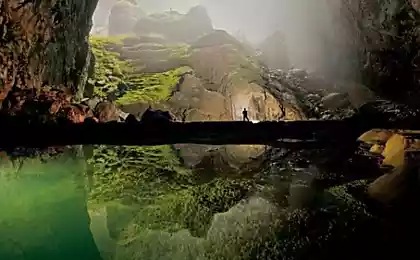766
The dirtiest river in the world
River Tsitarum (Citarum) is located on the island of Java in Indonesia. Once it has been slowly flowing river in which fishermen throwing their nets and sea birds produce their own food. Local residents took water from the river for their everyday needs. The river was filled with numerous irrigation canals to irrigate the rice fields.
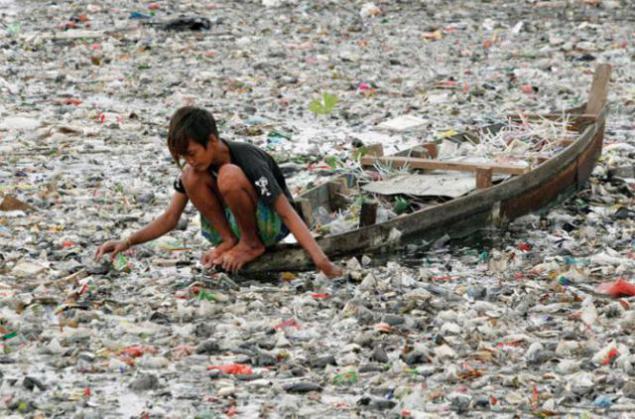
Today the river is Tsitarum in conditions of ecological catastrophe, suffocated by tons of household waste produced nine million people, and the emissions of hundreds of plants.
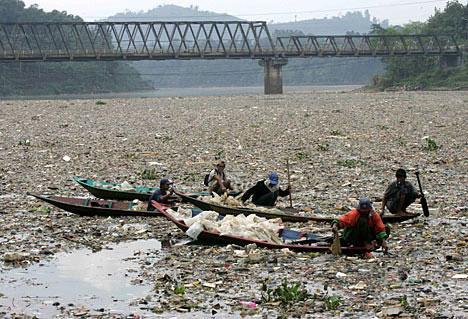
The carpet of debris on the surface of the river is so dense that the only reminder of the fact that there is water, a small wooden fishing boat, floating on the river.
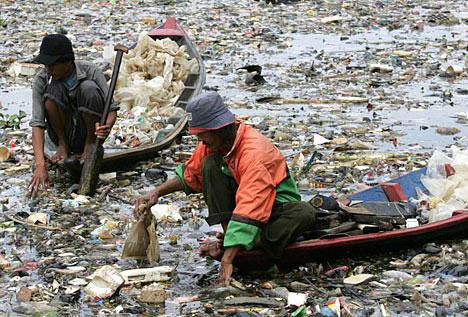
Passengers boats are no longer trying to catch fish. Now much more profitable earn a livelihood catching trash out of the water, which the former fishermen can then sell - a plastic bottle, broken chair legs, rubber gloves. At best, the garbage collectors earn their craft 1-2 pounds a week, every day risking their catch any disease.
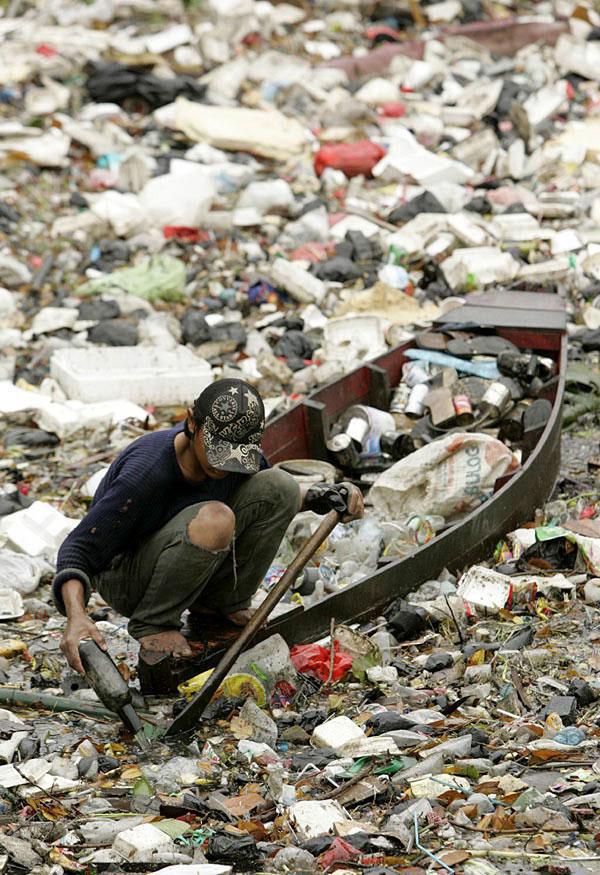
More than 500 factories, many of which produce textile products, which require chemical treatment, which is located on the banks of the 200-mile river, spewing waste into its waters. There is no such luxury as service to receive waste.
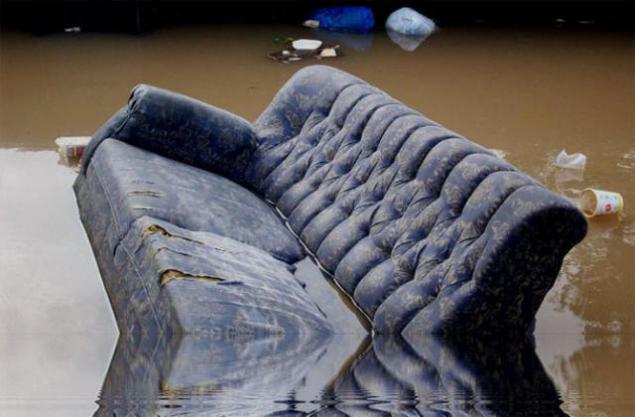
It does not exist here, and modern toilets. Quite simply drained into the river. Dirty water is absorbed into the soil in rice fields, and family risk their health by taking it for drinking, cooking and washing.
Just 20 years ago it was a beautiful place, then the river has served the people living along its banks.
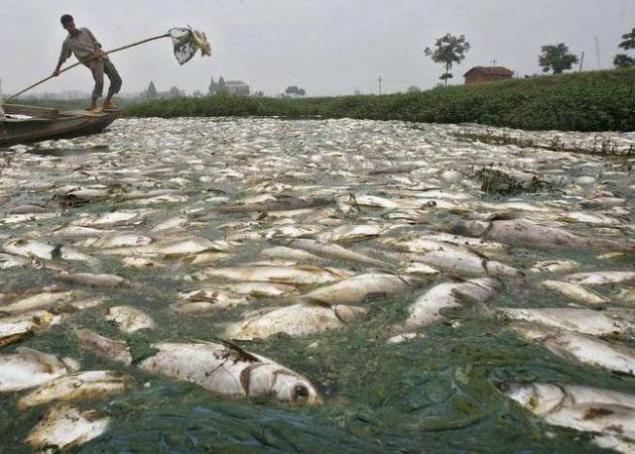
The decline of the river began with the rapid industrialization in the late 1980s. Majestic Tsitarum soon became a cesspool of garbage plants. Moreover, the negative effect will be extended further: Tsitarum - one of the two largest rivers feeding the lake Saguling (Saguling), on which the French engineers built the largest hydroelectric power plant in West Java.
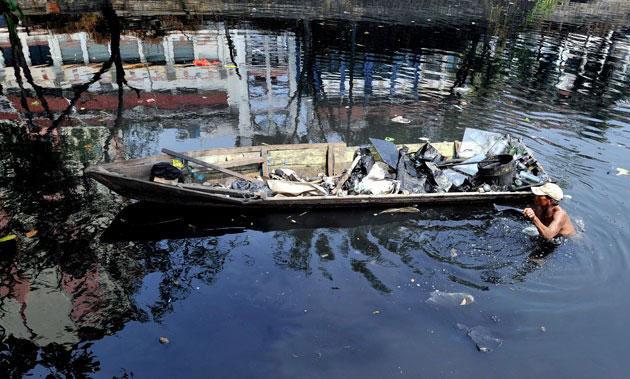
Experts predict that the river will soon clogged debris so that it will fall deepness and hydroelectric generator will not work properly. Then the area around the sink into the darkness, but, at least, plants also stopped, and the waste stream is interrupted.
And, perhaps, the river begins to breathe again.
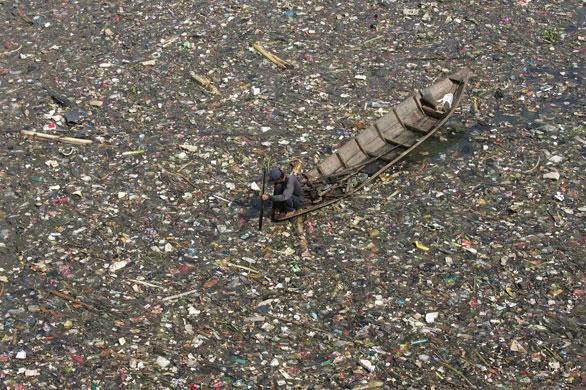
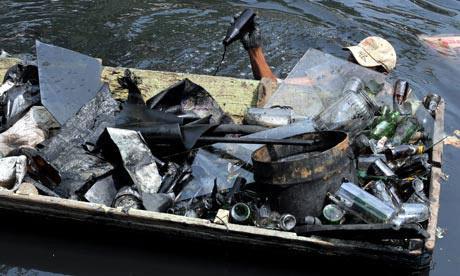
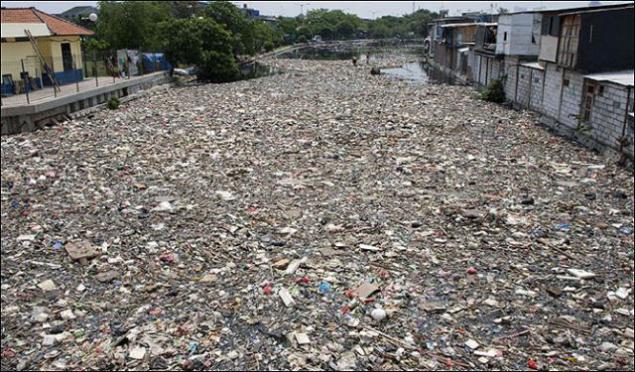

Today the river is Tsitarum in conditions of ecological catastrophe, suffocated by tons of household waste produced nine million people, and the emissions of hundreds of plants.

The carpet of debris on the surface of the river is so dense that the only reminder of the fact that there is water, a small wooden fishing boat, floating on the river.

Passengers boats are no longer trying to catch fish. Now much more profitable earn a livelihood catching trash out of the water, which the former fishermen can then sell - a plastic bottle, broken chair legs, rubber gloves. At best, the garbage collectors earn their craft 1-2 pounds a week, every day risking their catch any disease.

More than 500 factories, many of which produce textile products, which require chemical treatment, which is located on the banks of the 200-mile river, spewing waste into its waters. There is no such luxury as service to receive waste.

It does not exist here, and modern toilets. Quite simply drained into the river. Dirty water is absorbed into the soil in rice fields, and family risk their health by taking it for drinking, cooking and washing.
Just 20 years ago it was a beautiful place, then the river has served the people living along its banks.

The decline of the river began with the rapid industrialization in the late 1980s. Majestic Tsitarum soon became a cesspool of garbage plants. Moreover, the negative effect will be extended further: Tsitarum - one of the two largest rivers feeding the lake Saguling (Saguling), on which the French engineers built the largest hydroelectric power plant in West Java.

Experts predict that the river will soon clogged debris so that it will fall deepness and hydroelectric generator will not work properly. Then the area around the sink into the darkness, but, at least, plants also stopped, and the waste stream is interrupted.
And, perhaps, the river begins to breathe again.









